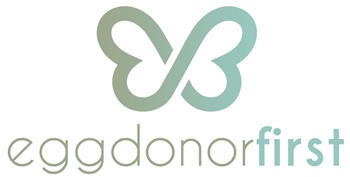For many couples and individuals, the dream of parenthood may seem out of reach due to infertility challenges. However, advancements in reproductive technology, including the use of donor eggs, offer hope and possibilities.
Pros of Using Donor Eggs
- Overcoming Infertility Challenges: Donor eggs can overcome a wide range of infertility issues, such as:
- Diminished Ovarian Reserve: As women age, their egg quality and quantity decline. Donor eggs provide access to high-quality eggs from younger, healthier donors.
- Premature Ovarian Failure: This condition occurs when a woman’s ovaries stop functioning normally before the age of 40.
- Genetic Conditions: Donor eggs can help couples avoid passing on genetic disorders to their children.
- Previous Unsuccessful IVF Attempts: In some cases, using donor eggs may increase the chances of a successful pregnancy after previous unsuccessful IVF cycles.
- Increased Success Rates: Studies have shown that using donor eggs can significantly increase the chances of a successful pregnancy compared to using the intended mother’s own eggs, particularly in cases of diminished ovarian reserve.
- Access to Healthy Eggs: Donor eggs are carefully screened and selected from healthy young women. This ensures access to high-quality eggs that are more likely to result in a successful pregnancy.
- Genetic Diversity: Using donor eggs can offer the opportunity to introduce genetic diversity into a family. This may be particularly appealing for couples who are concerned about passing on certain genetic traits or who are interested in exploring different ethnic backgrounds.
- Building a Family: Ultimately, the primary benefit of using donor eggs is the opportunity to build a family. For many couples and individuals, donor eggs offer a path to parenthood when other options have been exhausted.
Cons of Using Donor Eggs
- Emotional Considerations: Using donor eggs can raise complex emotional considerations for some intended parents.
- Grief and Loss: Some may experience feelings of grief or loss associated with not being able to use their own eggs.
- Guilt: Some may feel guilt or ambivalence about using donor eggs.
- Identity: Questions may arise about the child’s genetic connection to the intended parents.
- It’s crucial to acknowledge and address these emotions openly. Seeking support from therapists or counselors specializing in infertility can be extremely helpful.
- Financial Costs: Using donor eggs can be financially significant. Costs include donor fees, medical procedures (egg retrieval, fertilization, embryo transfer), medications, and other related expenses.
- Finding a Suitable Donor: Finding a suitable egg donor who meets the intended parents’ preferences (such as ethnicity, medical history, and personality traits) can sometimes be challenging.
- Legal and Ethical Considerations: It’s important to understand the legal and ethical aspects of using donor eggs. This includes considerations such as donor anonymity, the emotional well-being of the donor, and the legal rights and responsibilities of all parties involved.
Making an Informed Decision
The decision to use donor eggs is a deeply personal one.
- Conduct thorough research: Learn as much as you can about donor egg programs, fertility clinics, and the available donor profiles.
- Consult with a fertility specialist: Schedule a consultation with a fertility specialist to discuss your individual circumstances, treatment options, and available donor profiles. They can provide valuable information and guidance throughout the process.
- Consider genetic counseling: Genetic counseling can help you understand potential genetic risks and options, and make informed decisions about your family-building journey.
- Build a strong support system: Having a strong support system of family, friends, or support groups for intended parents using donor eggs can provide emotional and practical support throughout the process.
Using donor eggs can be a successful and rewarding path to parenthood for many individuals and couples. By carefully weighing the pros and cons, seeking professional guidance, and prioritizing your emotional well-being, you can navigate this journey with hope and confidence.





